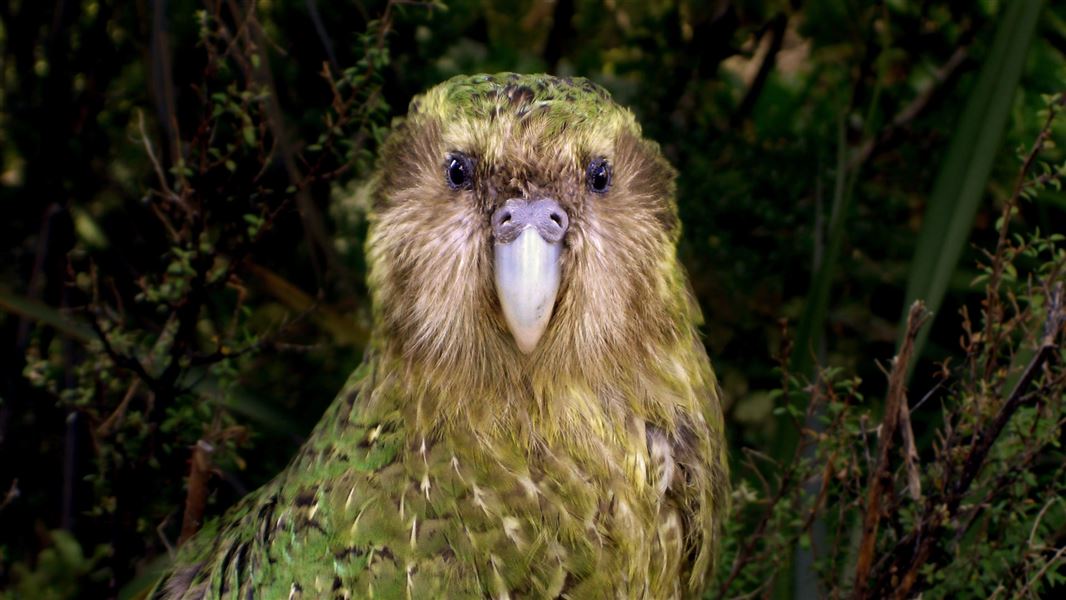Archived content: This media release was accurate on the date of publication.
Date: 08 February 2018
He was located during a search by two DOC kākāpō rangers, on his island home deep in the Fiordland wilderness after spending the past two years completely off the radar due to a failed transmitter.
Kākāpō operations manager Deidre Vercoe says it’s great to be able to check in with the famous parrot after his hiatus from the public eye.
“While we’ve been out to search for him a few times, we were confident he’d be perfectly happy out there in the wild in his predator-free home. We did miss him and his quirky personality though, and we’ve been really keen to catch up with him.”
Sirocco imprinted on humans as a chick, after he required extensive treatment for a respiratory illness. Now, with his 21st birthday approaching in March, he is still friendly with people, and appears no worse for wear from his temporary exile.
However, the Kākāpō Recovery Team will be taking a precautionary approach until they can better understand his demeanour and behaviour after two years of bachelor life, Deidre says.
“We know people will be keen to see him return to public life, however, like a true superstar, any future plans will be on his terms.”
Sirocco was named New Zealand’s spokesbird for conservation after he shot to fame following an encounter with zoologist Mark Carwardine, who was filming a BBC documentary Last Chance To See with British actor Stephen Fry.
Since then, he’s been a famous advocate for kākāpō conservation, making occasional appearances at sites such as predator free sanctuaries around New Zealand.
With the 150 kākāpō in existence living on remote islands, opportunities to see kākāpō are very limited. Sirocco’s ease around people presents a unique opportunity for the public to get see one of these incredible birds. His cheeky nature has made a big impact on those who meet him, and his story has helped introduce the world to kākāpō.
For now, Sirocco will remain on his island home – with a fresh transmitter so the team can keep an eye on him.
“Once we know how he’s doing and how he feels about having humans back in his life we’ll reassess the situation.”
Background information
- Kākāpō are one of New Zealand’s most vulnerable birds – the introduction of predators such as rats, stoats and cats brought kākāpō to the brink of extinction.
- There were only 50 kākāpō in 1995, when the DOC Kākāpō Recovery Team was established.
- Kākāpō are a taonga species to Ngāi Tahu.
- Meridian Energy has been the National Partner of Kākāpō Recovery since June 2016. They help DOC to fund essential research, raise awareness of the plight of the kākāpō, provide staff expertise, and volunteer whenever they can.
- About 5% of transmitters on kākāpō fail each year so the failure of Sirocco’s transmitter is not unusual. We would have been worried if a mortality signal had been picked up, which occurs when birds stop moving but this didn’t happen.
- Kākāpō Recovery website.
For media enquiries contact:
Bridget Railton, DOC Communications Advisor
Mobile: +64 27 532 0498
National media phone: +64 4 496 1911
Email: brailton@doc.govt.nz
